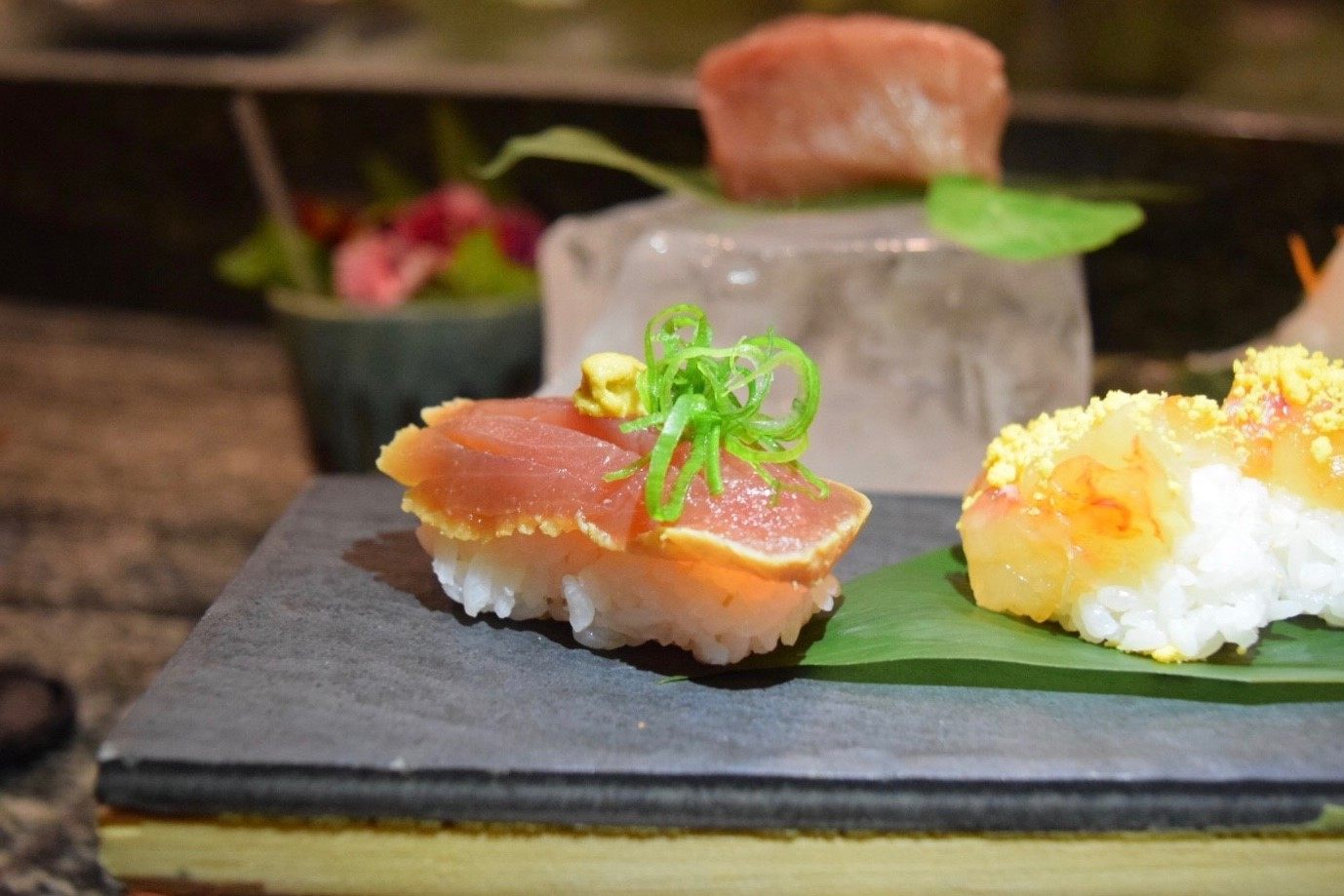Q&A With Chef Nic Watt Of MASU And TRUE Food
Nic Watt, owner and chef at the multi-award-winning contemporary Japanese restaurant MASU in New Zealand and new concept TRUE Food & Yoga, likes to keep his epicurean life simple. Two things are paramount for him: flavor and attention to detail.
Watt sources most everything locally. He says respecting the seasons ensures that the food served at MASU and TRUE is as naturally flavorful as possible. To say Watt is detail-oriented is a huge understatement; the Chef's Table setups are laser-guided to ensure that each chopstick, napkin, and placemat is aligned perfectly. Nothing is left to chance. The ice cubes are hand carved and made from deoxygenated water. Yes, I swear I could taste the difference. They tasted, well, like ice, but clean and refreshing and better than normal somehow.
I spent the better part of a late afternoon getting to know Watt at MASU. He walks fast, he talks fast, and yet there is an inner zen-like quality to him. Keep reading for his interview!
What food trends are exciting you these days?
At TRUE Food & Yoga, we love the restaurant brand True Food in America. I ate at one in Scottsdale, Arizona, and liked the concept. What we are bringing to New Zealand is something unique but true, too. Leading nutritionist Ben Warren of Be Pure has endorsed our nutritionally dense food. It's important for people to understand that it's not just about pumpkin seeds. We believe in honest food that changes seasonally and is rich in nutrients that help with wellness.
Our space also has two yoga centers as well as rooms for beauty treatment, physio [sic], chiro [sic], and massage therapy. It's located in Okahu Bay on the waterfront. Combining exercise and healthy cuisine is a great fit for us. The atmosphere is all about natural woods, botanical accents, and soothing white décor tile.
What type of food do you eat when on vacation?
Not a specific type; pre-kids it was not driven by cuisine. Now I would consider the best holiday places for food are Spain and Peru. Spanish meals are simple like Japanese cuisine and admired by chefs of all calibers around the world.
Do you cook for your kids?
Well, my 11-year-old daughter has been in the kitchen with me since the age of four and is also quite good at hospitality. (Laughs) My 7-year-old son, ah... I would be terrified to have him in the kitchen. My daughter has been doing pastry since she was 10. Both kids ate our food immediately; we did not cook "kid food." We even took our 3-year-old daughter to a Michelin three-star restaurant and they made 12 courses for us, I think, and she had her own six-course degustation menu. The only cooking concession we make is a little less black pepper for my son.
When you are not in the kitchen what are your hobbies?
I like to cycle. I cycled during my days living in London and I did get to do a stage of the Tour de France. Here, I like to be out on the water and really just be outside and active.
If you were on a deserted island and could only have three items for cooking, what would they be?
Seafood, of course; tamarillo fruit (an egg-shaped edible fruit known as a tree tomato); and haggis for sure would be the three. The best hangover cure is haggis and coffee, and drink water for 40 minutes.
What is the one spice you cannot live without?
That's not a fair question really. I can narrow it down to three: wasabi, chile – smoked chile, and cracked black pepper.
What is the favorite city you have lived in thus far?
Tokyo, I think. It's fantastic. But with children, it would be Auckland. I left at 21 with a backpack and came back with a wife and two children.
What are the best things about having restaurants in New Zealand?
One of the beautiful things about New Zealand cuisine is that we are truly seasonal. When asparagus is gone, it's gone. It's frustrating but on the other aspect it is really, really nice to go back to changing cooking for seasons. All our fish is local, 80 percent of fruit and vegetables are local. I love that our ginger blossom is also grown locally. The fish is seasonal and weather-dependent, and can be frustrating at first but then you get used to it.
All our wines in the restaurants are organic or biodynamic. All are available by the glass. You are never disappointed. Sixty percent are under the cordovan cork system so they don't go bad and we don't waste that way.
Did you have chef mentors during your rise?
I learned a lot from German-born Rainer Becker while working in Japan in 1996 at the Park Hyatt Tokyo. Rainer was at first nervous about bringing me in because there had been high turnover in the kitchen, but, long story short, I excelled in Japanese cuisine. I fell in love with the people, cuisine, and the culture. He had the highly successful Zuma and then we did Roka, and we took it globally.
Tell me about your younger years.
I was born in Sydney but grew up in New Zealand. I always loved seafood so it's not surprising I gravitated later to Japanese cuisine. The best was growing up eating live scallops, shucking them out of the sea and eating them live.
The seafood I was cooking as a young chef was not very good quality. So I thought, "Who handles the seafood the best in the world?" With an absolute love of seafood, it was a conscious decision to move to Tokyo.

